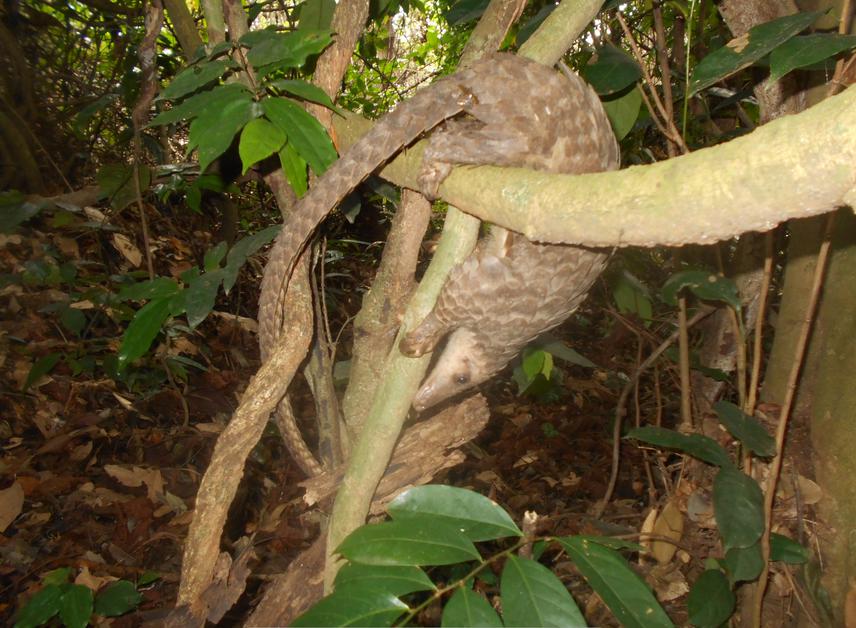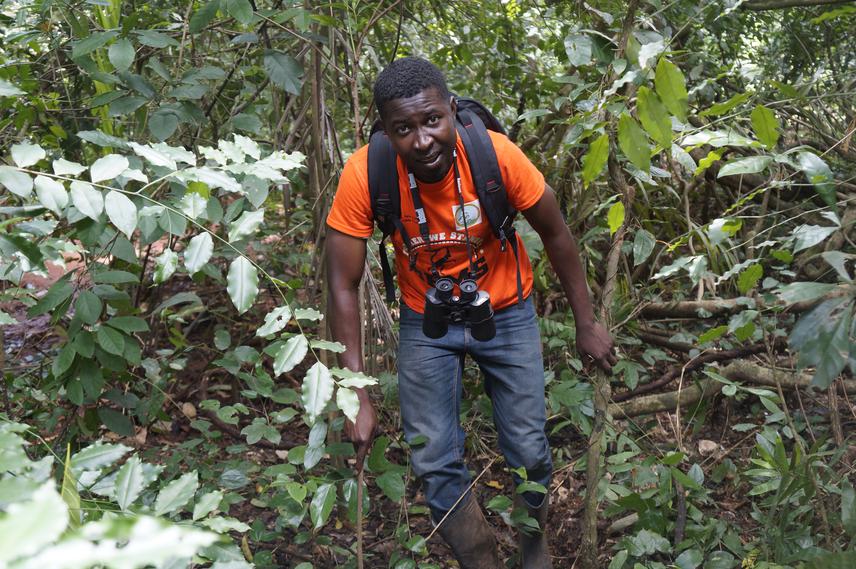Stephen Ofori
Other projects
27 Jul 2022
Scaling Up Pangolin Conservation in Ghana; Local Conservation Actions for Global Impact
Our project, "Scaling Up Pangolin Conservation: Indigenous Communities Leading Pangolin Conservation Initiatives in Atewa Landscape," is an urgent initiative aimed at addressing the critical decline of pangolin populations and restoring the biodiverse forest habitat within the Atewa Forest, Ghana. This landscape is recognized for its rich biodiversity and unique ecosystems, making it a vital area for conservation efforts. The primary aim of our project is to halt the rapid decline of pangolins, a critically endangered species, and ensure the long-term sustainability of their habitat.
Empowering Local Communities: We aim to empower local communities by providing them with the necessary skills and knowledge to monitor pangolin populations and contribute actively to conservation efforts. By training community members in data collection, we create a network of local stewards who are committed to protecting pangolins and other wildlife.
Habitat Restoration: A significant part of our project involves the restoration of degraded forest patches with native saplings. This reforestation effort is crucial for improving habitat quality and connectivity, providing essential shelter and food resources for pangolins, and supporting overall biodiversity. The reforestation activities will also offer direct employment opportunities for local communities, fostering a sense of ownership and responsibility towards conservation.

©Stephen Ofori / Agrointroductions.
Raising Awareness: Our project includes comprehensive awareness campaigns to educate communities about the ecological and cultural importance of pangolins. By changing local perceptions and behaviors towards pangolins, we aim to reduce hunting pressures and illegal trade. These campaigns will involve schools, local leaders, and community groups to ensure a broad and lasting impact.

©Stephen Ofori / Agrointroductions.
Pangolin Rescue and Rehabilitation: We will develop and implement pangolin rescue protocols, including the establishment of a dedicated pangolin rescue team. This team will be trained in the safe handling and rehabilitation of pangolins, ensuring that rescued animals are returned to suitable habitats. Collaborating with local NGOs, local authorities, and the Forestry Commission, we will identify low-risk areas within the Atewa Forest for the safe release of rehabilitated pangolins.
Sustainable Livelihoods: Although not the main focus of this phase, our project aligns with ongoing landscape-level conservation efforts that prioritize alternative livelihood interventions. We will support local communities by facilitating their enrolment in programs such as the Local Government's Planting for Food and Jobs Program 2024, reducing reliance on illegal hunting and deforestation.
By integrating these components, our project adopts a holistic approach that addresses the ecological, social, and economic dimensions of pangolin conservation. We believe that this comprehensive strategy will significantly contribute to the recovery of pangolin populations and the restoration of biodiverse forests in the Atewa Landscape, ensuring a sustainable future for this critical ecosystem.
Header: ©Stephen Ofori / Agrointroductions.